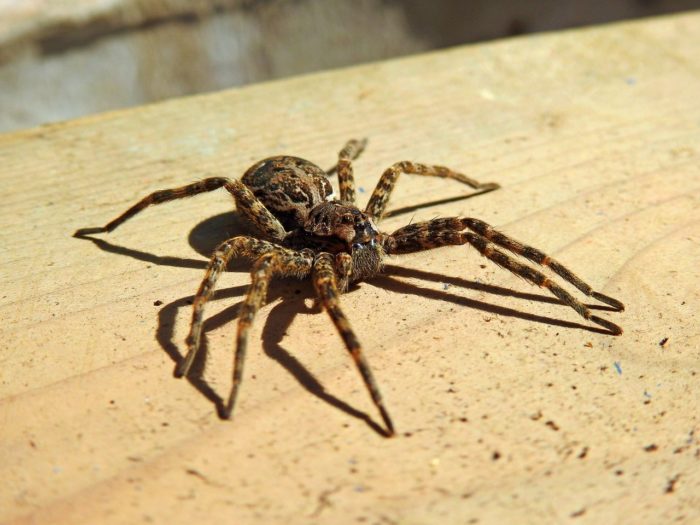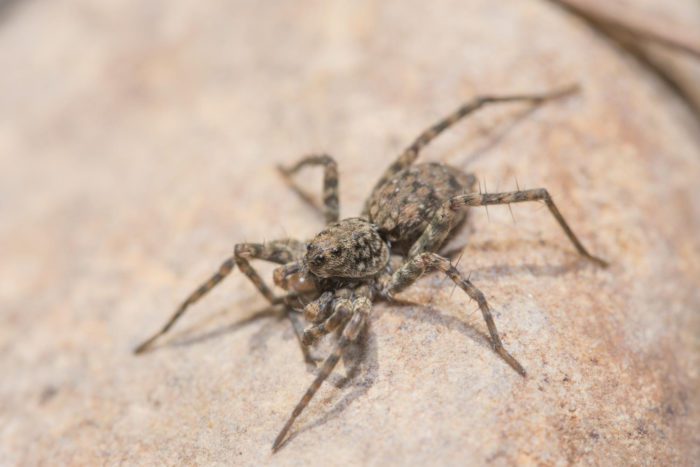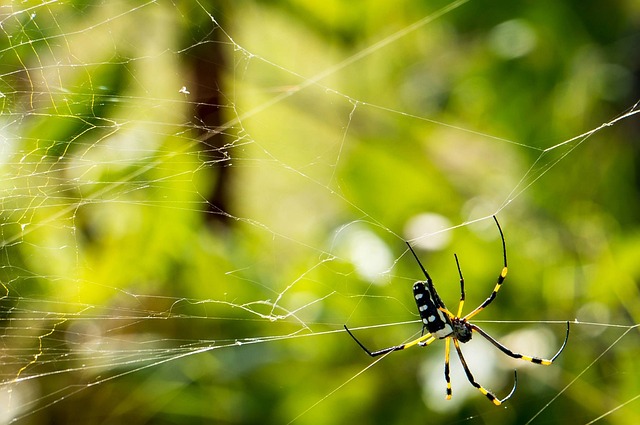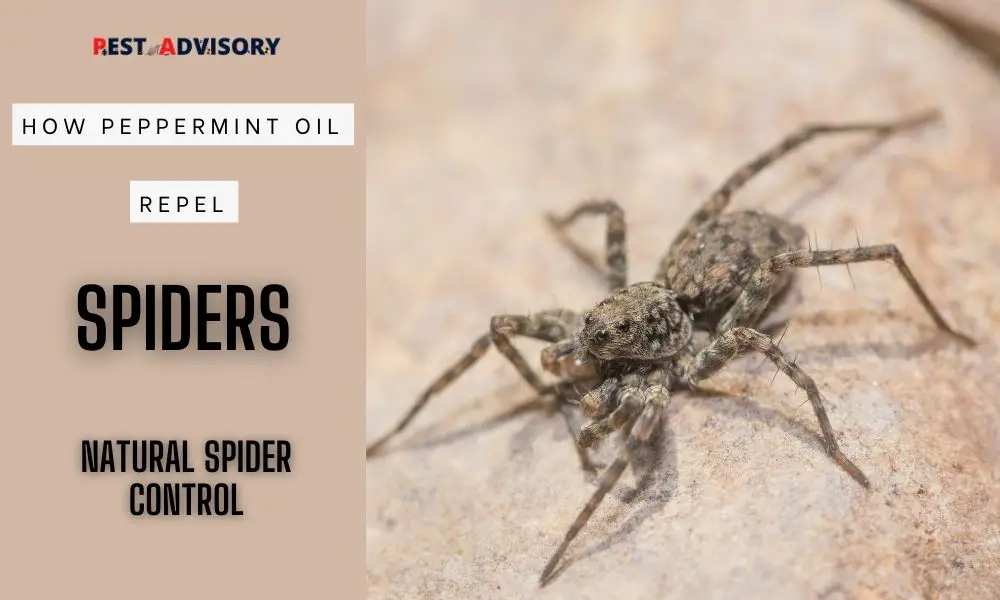Are you tired of eight-legged intruders spinning their webs in your home? Look no further than the refreshing power of peppermint oil to keep those spiders at bay.
In this article, we delve into the fascinating world of natural spider control and discover how peppermint oil can be your secret weapon.
Say goodbye to arachnid encounters as we explore the remarkable repellent properties of this aromatic remedy. Get ready for a spider-free sanctuary!
Does peppermint oil really keep spiders away?
Peppermint oil is believed to repel spiders due to its strong scent, which spiders typically find unpleasant. While anecdotal evidence suggests its effectiveness, scientific studies on peppermint oil’s specific impact on spiders are limited, making it essential to manage expectations when using it for spider control.

How to Make Peppermint Spray for Spiders
Ingredients
- Peppermint Essential Oil: 10-15 drops
- Water: 1 cup
- Dish Soap: 1-2 teaspoons (optional)
- Spray Bottle: Empty and clean
Peppermint Spray Recipe
- Pour one cup of water into the spray bottle.
- Add 10-15 drops of peppermint essential oil to the bottle.
- Optional: Add 1-2 teaspoons of dish soap to help the spray adhere to surfaces better.
- Close the bottle tightly and shake well to ensure proper mixing of the ingredients.
Usage
- Identify areas where spiders are frequently seen or where you suspect spider activity.
- Shake the spray bottle well before each use to disperse the oil evenly.
- Spray the peppermint solution directly onto surfaces such as windowsills, doorways, cracks, and corners where spiders might enter or reside.
- Focus on areas with spider webs or signs of spider activity.
- Reapply the spray once every few days or as needed, as the scent tends to fade.
Remember, while peppermint oil may deter spiders, its effectiveness may vary, and it’s advisable to combine its use with other spider prevention practices, such as regular cleaning, decluttering, stopping spiders web building activity, and sealing entry points to create a more spider-resistant environment.

Peppermint Oil as a Spider Repellent
Peppermint oil has gained popularity as a natural spider repellent due to its strong scent and properties that spiders find unpleasant.
While anecdotal evidence supports its effectiveness, it’s important to understand the underlying mechanisms and limitations of using peppermint oil for spider control.
Menthol and its Repellent Properties
- The main active component in peppermint oil is menthol, which emits a strong odor that spiders dislike.
- Menthol’s scent acts as a deterrent and disrupts the spiders’ sensory receptors, discouraging them from inhabiting treated areas.
Anecdotal Effectiveness
- Many individuals have reported positive results when using peppermint oil as a spider repellent.
- The strong scent is believed to create an environment that spiders want to avoid, reducing their presence in treated areas.
Limited Scientific Studies
- Despite the anecdotal evidence, scientific research specifically focusing on peppermint oil’s impact on spiders is limited.
- More studies are needed to provide conclusive evidence regarding its efficacy as a spider-repellent.
Temporary Nature of Repellent Effect
- Peppermint oil’s repellent effect may diminish over time as the scent fades, requiring regular reapplication for consistent results.
- Factors such as ventilation, humidity, and surface porosity can also affect the duration of effectiveness.
Individual Spider Behavior
- It’s important to note that different spider species may respond differently to peppermint oil.
- While some spiders may be deterred by the scent, others may not be affected or may adapt to the presence of peppermint oil.
Supplementing with Other Prevention Measures
- To enhance the effectiveness of peppermint oil, it’s recommended to combine its use with other spider prevention practices.
- Regular cleaning, removing spider webs, reducing clutter, and sealing entry points can complement the repellent properties of peppermint oil.

Benefits and Limitations of Peppermint Oil for Spider Control
Peppermint oil offers several benefits as a spider control method, but it also has certain limitations to consider. Understanding both aspects can help you make informed decisions about using peppermint oil for spider control.
Benefits
Natural and Non-Toxic
Peppermint oil is derived from the peppermint plant and is considered a natural, eco-friendly alternative to chemical-based spider control methods. It does not pose significant risks to human health or the environment when used as directed.
Pleasant Aroma
Peppermint oil has a fresh, minty scent that many people find appealing. Using it as a spider repellent can not only help keep spiders away but also leave your home smelling pleasant.
Versatile Application
Peppermint oil can be applied in various ways, such as creating sprays, using cotton balls soaked in oil, or placing oil-infused diffusers strategically. This flexibility allows you to target specific areas or customize your approach based on your needs.
Limitations
Temporary Effectiveness
Peppermint oil’s repellent effect is not long-lasting. The scent tends to fade over time, requiring regular reapplication to maintain its effectiveness. This means you need to stay vigilant and reapply the oil as needed to sustain its spider-repellent properties.
Variable Results
While many individuals report positive experiences with peppermint oil, its effectiveness can vary depending on factors such as the spider species, environmental conditions, and individual spider behavior. Some spiders may be more resilient or less affected by the scent of peppermint oil.
Limited Scientific Evidence
Scientific studies specifically examining peppermint oil’s efficacy as a spider repellent are scarce. Anecdotal evidence and personal experiences form the basis for its use. More research is needed to establish its effectiveness and understand the mechanisms behind its repellent properties.
Not an Eradication Method
Peppermint oil primarily works as a repellent rather than an eradication method. While it may deter spiders from entering treated areas, it may not eliminate an existing spider infestation. Combining peppermint oil with other control measures can enhance the overall effectiveness.

Conclusion
Harnessing the power of peppermint oil in your battle against spiders can bring a refreshing and eco-friendly approach to pest control.
While scientific evidence is limited, countless individuals swear by its effectiveness.
So why not give it a try? Embrace the natural scent, create a spider-free sanctuary, and enjoy the peace of mind that comes with a home liberated from our arachnid friends.
Use peppermint oil along with other spider-removing home remedies like hair spray to kill spiders, Windex to kill spiders, and vinegar to get rid of spiders.
Say goodbye to spiders and welcome a minty-fresh haven!

Very Informative thanks for sharing this information